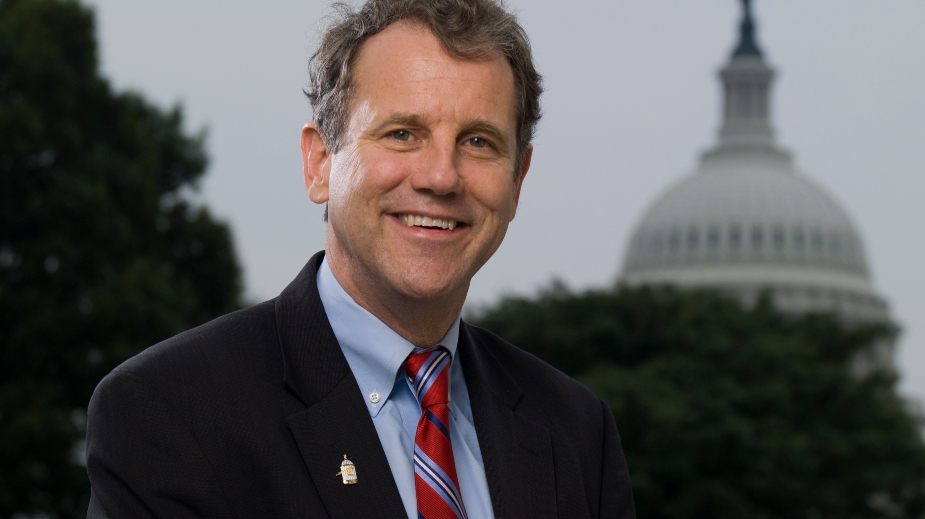Brown Proposes Aid for Local Governments in COVID Relief Bill
YOUNGSTOWN, Ohio – U.S. Sen. Sherrod Brown said he is willing to work with Republicans on COVID-19 relief, but wouldn’t rule out resorting to reconciliation – a legislative tool to bypass the need to secure a filibuster-proof majority in the Senate – in order to get legislation passed.
Joined by Mayors Jamael Tito Brown of Youngstown and Steve Patterson of Athens, the senator held a news conference call Wednesday to discuss the Direct Support for Coronavirus Relief Act, legislation he is introducing that would create a fund to provide direct assistance to municipalities.
“I’d love to get the 60 votes but my job is to get it done, not to be nice to my colleagues and beg them,” said Brown, D-Ohio. “I took an oath back in 2019 to serve my state and that means doing all we can to help people.”
Local governments across the country have incurred extra costs as a result of the pandemic, from purchasing personal protective equipment and increased demand for health services to more families needing assistance at sites such as food banks, he said. At the same time, they are dealing with reduced tax revenue because many people are unemployed or working reduced hours because of the pandemic.
Under Brown’s proposed legislation, half of the funds would be committed to counties and the other half would be distributed to cities, towns and villages.
Local officials are best positioned to get the money to where it’s needed, Tito Brown said.
“We hear from our residents,” he said. “We see the devastation that this pandemic has placed on us.” Even before the pandemic, Youngstown’s unemployment rate was one of the highest in the state and now is about double what it was, he said.
Mayors of cities and villages, regardless of size, “truly know where the needs are,” Patterson affirmed. He also noted that many smaller communities expressed concern over the red tape they encountered when trying to access funds that were available under the Cares Act.
“Many small communities don’t have the capacity in terms of staff or expertise to filter through the insurmountable red tape that was attached to the Cares Act funding,” he said.
Combined with the short time frame and “moving goal posts” for expending the money, many smaller communities forfeited their Cares Act allotment for fear of having to repay the funds if they were found to be noncompliant. Brown’s proposed legislation would provide communities with additional flexibility, he added.
Republicans, including U.S. Sen. Rob Portman, have questioned how using the budget reconciliation process fits in with President Joe Biden’s calls for unity during his inaugural address. They have also called for accountability and want to see how the recently approved $900 billion is spent and whether more federal money is needed before approving another relief package.
Sherrod Brown noted that the unity message was absent when Republicans used reconciliation to pass the Tax Cuts and Jobs Act of 2017, which he characterized as a nearly “$2 trillion giveaway” to the richest people in the nation.
“We can use the same process to actually give assistance to working families so that they can survive during this pandemic,” he said.
He agreed with the need for accountability, but the Senate erred when after passing the Cares Act early in the year it didn’t pass any further relief legislation until December under “the same sort of flimsy argument” that not every dollar of the prior package had been spent, he said.
“Those days are over. We’re going to deliver for people,” he said.
During the call, the senator also fielded questions about Portman’s announcement Monday that he would not run for re-election. Speculation over the last day has centered on former Ohio Department of Health director Dr. Amy Acton, following news reports that she is considering a bid.
Brown said he has spoken with several prospective candidates for the Senate seat, but “at this point just kind of talking them through what being a candidate for the Senate is like.”
He has spoken to potential candidates for Ohio governor as well about what the state needs to do. One of the reasons the two mayors were on the call is the cuts cities have seen in local government funds from the state.
He was blunt about one of the potential Republican candidates for the seat, U.S. Rep. Jim Jordan, R-4 Ohio, whom many pundits consider the frontrunner for the GOP nomination.
Jordan, whom Brown said has “continued to spout” that the 2020 presidential election was rigged, “would be last on my list,” he said. The Jan. 6 siege on the Capitol happened because of politicians who incited violence, and continue to promote the lie that the election was not legitimate, Brown said.
“People like that shouldn’t serve in public office,” he said.
Copyright 2024 The Business Journal, Youngstown, Ohio.



